***Just a quick note to tell you about the fabulous Bake Sale For Haiti that is going on today! My X’s and G’los Valentine’s Day Variety Pack is up for auction (including the new S’moooooooooooore bar!!) in addition to a TON of other delicious looking goodies!*** :mrgreen:
~~~~~~
Hey guys!
Sorry about my disappearance today. I have been going through some personal stuff and had to attend to that in addition to my work.
But alas, I am here as soon as I could be, and I have quite an interesting topic I would like to discuss!
You may or may not be aware that I am a huge Dr. Oz fan. I saw his very first appearance on Oprah and I was immediately a fan. I own almost all of his books and I just love his balanced approach to health. Each week I check his website and see what shows I want to see and then I set the VHS to tape it. (Yes, I said VHS…remember those? No PVR here. We don’t have cable!) :oops:
I taped today’s episode because I love the topic. It was on common everyday foods that may be poisoning us. I was intrigued to find out what Dr. Oz had to say!
Dr. Oz said there are three main poisons in our food:
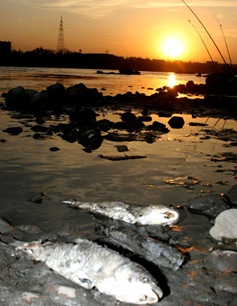 1) Mercury
1) Mercury
90% of all mercury in our blood is derived from eating fish. High levels of mercury have been shown to attack the brain and nervous system. ‘Fish Fog’ is a term used to describe a person with mercury poisoning; symptoms often include foggy and unclear thinking, difficulty concentrating, etc.
While most fish contain some mercury, the fish with the highest level of mercury is the sushi-grade tuna, according to Dr. Oz. He advised against eating tuna often. Interestingly enough, Dr Oz’s study found that Albacore tuna (which is an expensive type of tuna) actually had higher mercury levels than regular chunk light tuna (the cheap stuff!). I found this quite shocking! When I used to eat fish, I always tried to buy Albacore because I thought it was safer. Not true, says Dr. Oz. Albacore tuna is higher in mercury because it is a bigger and older fish. As a general rule of thumb, bigger and older fish will have higher levels of mercury in them. Fish with high levels of mercury include: Sushi, tuna, and tilefish, among others.
Dr. Oz recommends selecting small and young types of fish like herring, sardines, and even salmon as safer choices for lower mercury levels.
There was a time in university when I used to live off of tuna. I’m not even joking. Canned chunk light tuna was cheap and I ate a can everyday. :cry: Maybe my exam scores would have been higher had I not?? ;)
2) Pesticides
On virtually all non-organic fruit and vegetables, pesticides can be found. In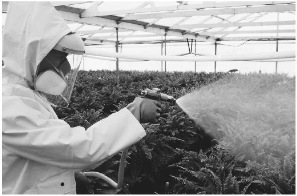 some human and animal research, pesticides are thought to increase the risk of ADHD, autism, and obesity.
some human and animal research, pesticides are thought to increase the risk of ADHD, autism, and obesity.
Now don’t stop eating your fruits and veggies, instead become a wise consumer of what you select.
Obviously organic produce is expensive, so that is why we can find out what fruits and vegetables are at the lowest risk for pesticides and try to purchase those whenever possible. I tend to follow the Dirty Dozen (and clean fifteen) rules of thumb whenever possible.
If you can only purchase one fruit that is organic, they suggest buying organic apples. Why? Because people tend to eat a lot of apples and it is on the dirty dozen list.
If you can only purchase one organic vegetable than purchase organic potatoes. I didn’t know this, but potatoes are one of the worst vegetables for pesticides, so much so that the pesticides seep through the skin into the actual potato. For some reason I thought that potatoes would have a thick skin and be resistant to pesticides, but that doesn’t seem to be the case. I would like to add that two vegetables I always buy organic are spinach and kale, as they are near the top of the list and I eat them very frequently (For organic spinach that is about half the price- go to Costo! I just discovered this myself.) Low-risk vegetables like cucumbers, onions, cabbage, eggplant, asparagus, and broccoli, I do not buy organic in an effort to save money.
3) Bisphenol A (BPA)
 Ninety-three percent of adults have some amount of BPA in their blood. BPA is a building block found in many plastics and linings of cans. BPA is thought to increase the risk of infertility, cancer, diabetes, and obesity (however this is widely debated).
Ninety-three percent of adults have some amount of BPA in their blood. BPA is a building block found in many plastics and linings of cans. BPA is thought to increase the risk of infertility, cancer, diabetes, and obesity (however this is widely debated).
How can we protect ourselves against BPA?
- Check the number on the bottom of the plastic. Number 7 (hard clear plastic) contains BPA. Number 3 (PVC) and Number 6 (Polystyrene) are also known to leach chemicals.
- Buy fresh food whenever possible
- If you can’t buy fresh food, buy frozen food instead of cans
- Select glass containers as opposed to cans
- Do not freeze or microwave plastic
So there you have it, three poisons in our everyday foods, according to Dr. Oz.
Personally, I think it is a shame that we have to worry about our food so much in this day and age. Everything just seemed so much more simple a 100 years ago! It is quite sad when I think about the state that our food system is in. For the most part, the food industry is all about cranking out the most amount of food for the lowest amount of cost. In turn, our food has become compromised in a huge, huge way. Pesticides, GMO’s, and other chemicals are the norm.
I feel like everywhere we turn, there is a new study out there saying that this food is bad to eat or this chemical is in our food. When will it end? And most importantly, will there ever be a day in our future when we can feel confident in the food that we put in our bodies? Or will the system continue to get worse?
I try not to get bogged down too much about BPA or other such things because I think that it is impossible to avoid it entirely. I also think it is still too early to really know what effect these things are having on our bodies. For now I just try to make sensible choices when I can and not let myself lose sleep over it. If I listened to all the reports, there wouldn’t be anything left to eat!
What are your thoughts on the 3 above mentioned ‘poisons’? Do you avoid any of them :?:
Time to catch some zzzzzz’s. Been a long day. Nighty night, don’t let the bed bugs bite.

There are no seasons in the American supermarket. Now there are tomatoes all year round, grown halfway around the world, picked when it was green, and ripened with ethylene gas. Although it looks like a tomato, it’s kind of a notional tomato. I mean, it’s the idea of a tomato. ~Michael Pollan

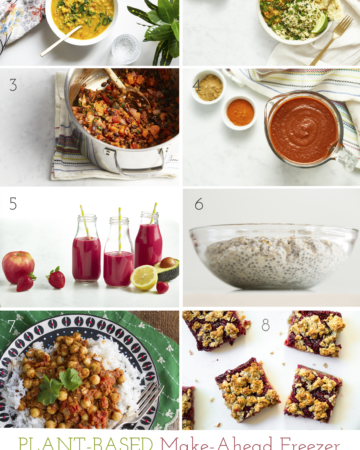
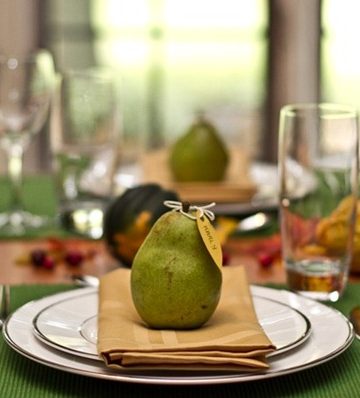
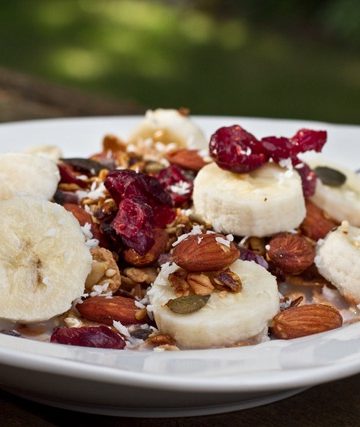
I find that every day we should or shouldn’t be doing more and more things. Microwaves cause cancer, cell phones will give you brain tumors, soy has too much estrogen…it gets overwhelming! In my life I try to focus on eating healthy, balanced meals. Its difficult to try to keep all of the no-nos in mind while staying on budget and being satisfied with what you are eating. You gave some great information, it is always important to know these things, even if you keep them in the back of your head!
I’ll probably endure the wrath of many readers, but I highly disagree with a couple of statements made in the article and in the comments that imply our food is not as safe as it was years ago.
“Personally, I think it is a shame that we have to worry about our food so much in this day and age. Everything just seemed so much more simple a 100 years ago!” One hundred years ago (104 to be exact) a book was published called “The Jungle” that attempted to expose the horrible labor practices of the meat industry. However, the author, Upton Sinclair, was disappointed to find that he had aimed for readers’ hearts and hit them in the stomach. The public was more outraged at what they were eating than how the laborers were being treated. Evenutally this led to the development of a federal agency that was the precursor to the FDA which, love it or hate it, has played a role in the advancement of food safety in the US.
Anna above comments “Our desire for cheap, convenient food has come with a price: food safety.” I disagree. Huge food safety advances have been made in the milk industry for example through the paseturization process. Yes, the jug may contain BPA, but it no longer contains pathogens that cause illness and death. The canning thermal processing standards prevent people from ingesting botulinum toxin which is fatal. An interesting note: most botulinum deaths are from home canned vegetables.
While I would never argue that improvements are not needed as research uncovers risks and correlations previously unknown, I think it very unwise to assume we are worse off today than we were years ago because of the food available. If we want to talk about the choices we make of what to eat, that is another conversation entirely.
I agree COMPLETELY!!!
Yes, but a 100 years ago, most people were eating homemade meals made with fresh, local ingredients. Today we are eating “food” that comes pre-cooked and pre-packaged, treated with tons of chemicals, and is determined “safe” my government officials who have a vested interested in favoring the big food companies.
Still, people acquired all kinds of illnesses from the foods they ate because sanitary conditions were well below what they are today – Typhoid Mary is just one example. The clean water from the tap you use to wash your hands and the dirt off your produce is not perfect either, but it beats the alternative.
And 100 years ago, a lot of our superfoods (goji, chia, maca, rice protein, etc) were not widely available and vegetarians/vegans were quite rare becuase the variety needed to sustain this lifestyle was not available.
Many fruits and vegetables were rarely placed on the table during the winter months and those that could be stored were kept in cellars where the mold counts grew to numbers we would consider unhealthy and unfit for consumption today.
I’m not saying eat Oreos and hot dogs – I’m just saying when you eat a banana in the middle of winter, don’t assert everyone was better off before BPA, mercury and tomorrow’s food scare.
True, true. Good points.
So glad you posted this, as it saved me much typing. I was thinking of Upton Sinclaire during the reading of this post.
Thanks for the great info! I hope you get your personal stuff worked out!
Great post! I try to get organic fruit and veg whevener I can, but the supermarkets here in Trinidad don’t sell any so I have to grill the vendors at the farmer’s market (some of which will tell you anything to get you to buy their stuff!) to find out.
I do try to avoid BPA–I just bought a Sigg bottle and I’m trying to avoid microwaving food in plastic. But the cans…. I eat lots of canned goods and, while some can’t be avoided (tomatoes, etc) I really should try to soak and boil my own beans.
Keep your head up, Angela! I hope the personal stuff gets sorted out.
very interesting post!
I also love Dr. Oz, although I think his new show sucks. He’s always touching people and grabbing his guest’s hands…it’s so awkward!!
This is a very informative post and thanks for sharing this information!! I will admit though, that I am one that just tries to focus on eating healthy, balanced meals with lots of fruits and vegetables. I don’t buy many organic things (do buy organic apples…which I didn’t even realize was the #1 recommended thing to buy! they just have them for cheaper at our store) because of a very very tight budget and I can’t keep up with all of the ‘this is bad, this can cause cancer’ stuff. I do sometimes think twice about it, but figure there are plenty of other things to worry about in life ;)
I honestly try not to think about it. I try to eat natural food and organic when I can, but I hate stressing about things I have little control over!
I hope you’re ok…Happy Hump day!!cc
Ah, every time I read of a new toxin I get a little more overwhelmed. There are so many things to worry about in terms of eating nowadays. Is this fish better than that in terms of mercury? Is this bottle safer than that because of BPA? Which produce do I need to buy organic? It’s tiring sometimes, but I still try to follow the “rules” because at the end of the day I’m a worrywart. Thanks for all of the great info!
Honestly, I can’t get my panties in a knot over this. If anything, I come from the same place as CC above. I refuse to live in a bubble, so I’ll just make the best choices I can given what food is available and what income I have.
Wow thank you so much for this post! This was really informational! A couple things I did know, but not the majority. I definitely plan on buying organic potatoes and apples now.
My nalgene states it is #7 but also bpa free? I sent this out to my family members as well and I plan to link back to it on my blog. Thanks again!
I hope that everything is okay. It really does seem like food was much simpler 100 years ago! I love the end quote by Michael Pollan. I recently started eating ahi tuna and tuna rolls with some frequency (1-2x a month). Yikes! Definitely going to stop that. I always but organic apples, for the reasons you elucidated above. Great post!
I feel the same way – what CAN we eat?
I eat 90% organic. There is no reason that organic should be “too expensive” for someone to consume, unless you are literally living month to month on your paycheck.
Rethink what you spend your money on. What are your priorities? You car? Beauty products? Clothes? Fancy coffees?
It’s your body, your health. What could be more important than that? Think of buying organic as an investment in a better, healthy, happier you.
We are partly to blame for the cost and quality of foods if we accept the way our foods are grown/treated/processed/modified by continuing to consume them. Organic foods will only become more accessible to the general public if those that can create the demand.
youre so right, this is so hard to balance. it’s hard not to become obssessive about it. the information you provided is great b/c most people can not afford to buy all organic and i would have never guessed to buy potatoes organic. Groceries have gotten so expensive it’s almost scary…It worries me people don’t realize the importance of buying locally.
My husband is really concerned about the BPA issues. He recently went through all of our kitchen items and donated all the plastic.
I love that last quote. It makes me think of Animal, Vegetable, Miracle, which was truly a life-changing book. Thanks so much for sharing all of this with us!
I try to eat as organically as possible. However, some produce is really expensive so I try to buy organic on the things I eat everyday.
Tune in to Oprah today: The episode is all about the food you eat, where it comes from, and how it affects your health. Alicia Silverstone will be on as well. I thought you might be interested!
Great info!
I hope the doctors can get your health sorted out and that it’s not anything really serious…You are stronger than you think!! You will get through whatever it is and I’m sure you’ll GLOW while you do it :)
YAHHH I’m winning the globar pack on the bake sale auction right now!!
Shit!!
I’m not on Twitter to reply, but I saw the threat to be out-bid by @sweettaterblog!!
Ahhhhh- must.win.globars.!!
I want to taste the S’mooooooore bar so bad!!
Haha I’m loving that quote!!
I find this post extremely interesting. And scary! The thing about the albacore tuna realllly surprises me because like you, I’ve always bought it over the chunk light because I thought it was better for you. Now I know better.
And I think organic produce is SO worth it when you can afford it. I also had NO idea about the potatoes!!! I have heard of the dirty dozen and usually buy organic apples, grapes (when they are available), pears, strawberries, spinach, lettuce, etc. but potatoes? You know, they don’t even have organic potatoes in most grocery stores.. scary!!
I do think it’s sad that we have to worry so much about our food just because companies want to be able to produce the most food at the least cost. Even where I work at a small family owned farm, they have to use pesticides to compete with local growers!!! The owner has looked into growing without it but it’s so expensive!